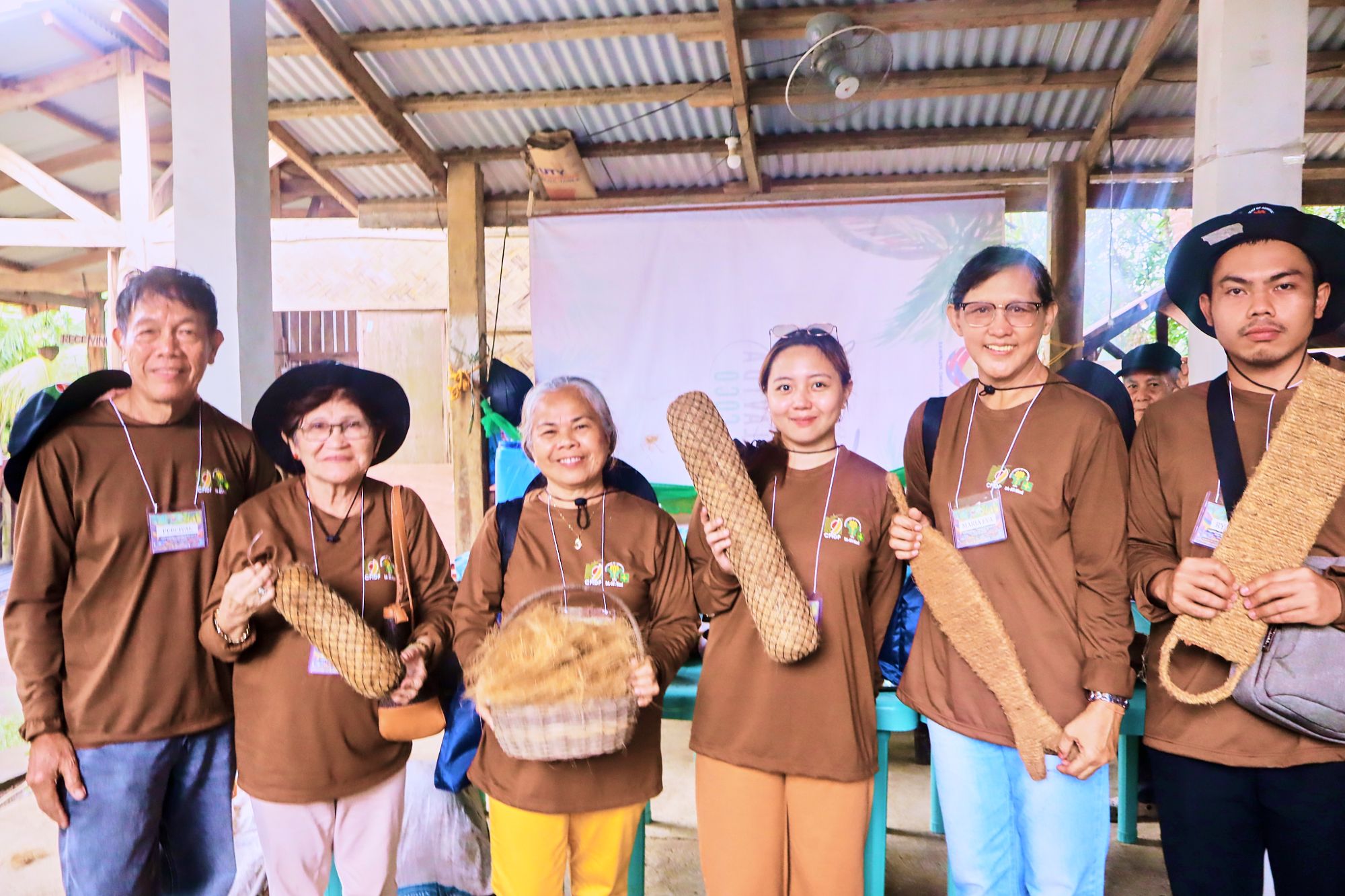
The participants showcase various coconut-based products.
PILI, Camarines Sur- The AgriNIYOGosyo Training of Trainers on the Farm Business School for Coconut Enterprise wrapped up its 12-day program at Isarog Hall, ATI RTC V, Pili, Camarines Sur, on March 14, 2025. Designed to strengthen the knowledge and skills of trainers, the program focused on equipping them to guide coconut farmers in enhancing business management, improving productivity, and boosting the profitability of coconut enterprises.
The training opened with an inspiring message from ATI Bicol Center Director Elsa A. Parot, emphasizing the program's transformative potential for the coconut sector. Participants were grouped into four themed teams—Buko Juice, Buko Pie, Coco Vinegar, and Coco Jam—to foster collaboration throughout the sessions.
Participants engaged in an immersive learning experience through workshops, market surveys, and benchmarking activities, supported by expert resource speakers from ATI Bicol, Central Bicol State University of Agriculture (CBSUA), Philippine Coconut Authority (PCA), Landbank of the Philippines (LBP), Philippine Crop Insurance Corporation (PCIC), Agricultural Credit Policy Council (ACPC), Department of Agriculture-Agribusiness and Marketing Assistance Division. A key activity included field benchmarking and market surveys in selected municipalities, where participants explored innovations in the coconut industry and gained insights into market prices and costs.
The training also featured sessions on financial planning and microteaching, culminating in group presentations to apply their newfound skills. Trainers showcased their ability to lead discussions and facilitate learning, reinforcing their roles as advocates for empowering coconut farmers.
The program concluded with a formal ceremony, where participants received certificates of completion and recognition. Dr. Emmanuel L. Orogo, ATI Bicol Assistant Center Director, encouraged attendees to serve as future resource speakers and actively share their learnings with cooperatives and local farming communities, paving the way for a more resilient and profitable coconut industry.





